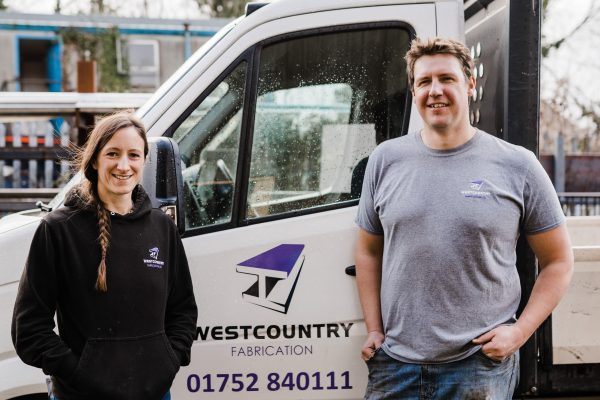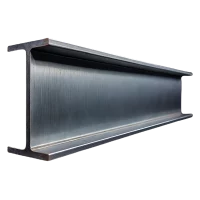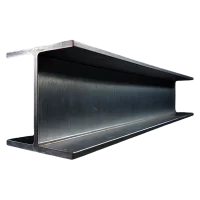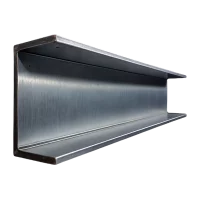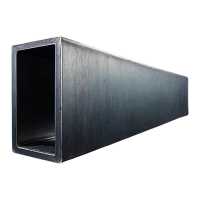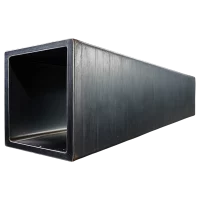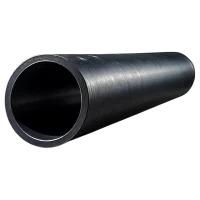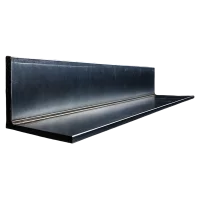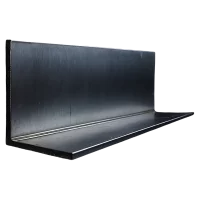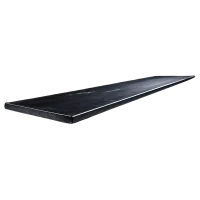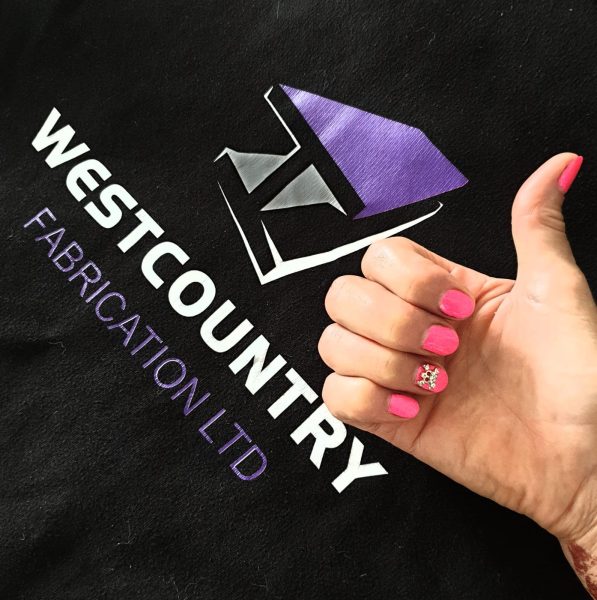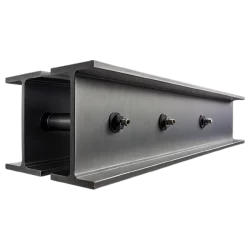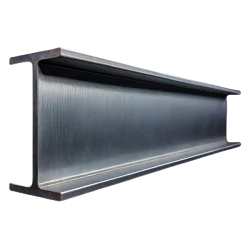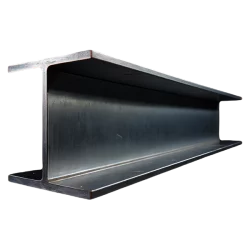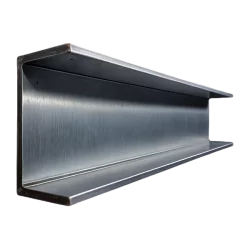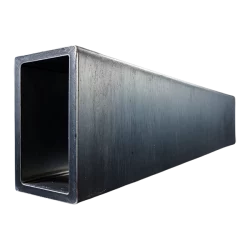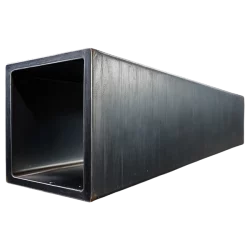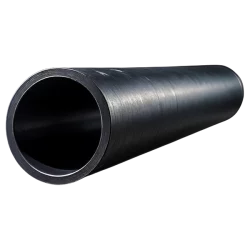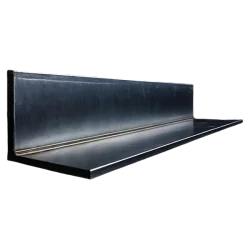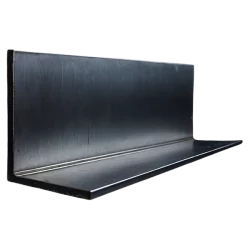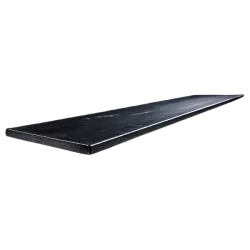Company News, Meet the team
5 Insights As A Woman in Construction
Women in Construction Week and International Women's Day 2024
[Disclaimer: This is my personal experience and is in no way intended to represent the experience of anyone other than myself]
I have not always been ‘a woman in construction.’ When I was a child, I wanted to be a nurse, then I wanted to be a vet. Construction never entered my mind. For university I was torn between physiotherapy and environmental science, yet here I am today, as a Company Director of a small steel fabrication firm. How did that happen?
It is World Book Day today, and as children across the globe head into school as their favourite book characters, I am reflecting on my own story. The how and the why I am where I am today.
Books have power, and more than ever before there are a range of careers introduced to women and girls today as literature is branching out beyond the traditional ‘damsel in distress’ rescued by her prince. I am an enthusiastic fan of Andrea Beaty and her stories ‘Rosie Revere the Engineer, and ‘Iggy Peck Architect.’ ‘Women of Steel’ by Michelle Rawlins is also an inspirational read. Let us adjust the bar a bit here, ‘Samantha Hammond Director’ does not have the same ring to it, but in the spirit of World Book Day, Women in Construction Week, AND International Women’s Day (tomorrow), here goes.
In my previous work, I was a Programme Manager and Lecturer. I studied Environmental Biology at University, achieved a first class honours degree, I went on to do a PGCE and master’s in education. I was in a working environment and industry with a roughly equal gender split, and no noticeable (to me) gender bias or sexism. The teams I worked with were incredibly supportive and respectful. I made friends and colleagues and climbed the career ladder. I had a male line manager but also a strong female leader working alongside him, she is now head of campus.
Coming from that environment, one in which students, staff, colleagues, visitors came with a mutual respect, regardless of gender or role, it was easy to become complacent and to feel that sexism was not an issue in the workplace. But what about for women in construction? This is an industry where there is not an equal split. In the UK as of 2023 1.8 million men work in construction, compared to only 297,000 women.
So why are so few women working in construction?
The House of Commons Administration Committee hosted a recent public evidence session on the topic of women in construction that offers some insight (see here for the transcript).
Katy Moore MBE (Managing Director at Women into Construction) commented:
“‘There can be a feeling among teachers of “we’ll send the ones who are not going to make it to university off to construction”
“There is a preconception that you use either your brains or your hands in a job- construction of course, uses both”
There is clearly a lot at play. But these statements give an indication of what I see is the greatest challenge for both women, and men, in construction. It is one of a lack of value, and respect for the jobs those in construction do. There is a cultural challenge associated with the industry that starts in our schooling and extends all the way through our society. It is a challenge which I did not face in my previous career in education, but I do experience in construction. This culture, the lack of value and respect, does effect both men and women in construction but perhaps not equally.
Jaqui Wordsworth states:
‘In a lot of the instances that we understand, there are a lack of networks and a lack of support. If you are the only woman in your team or the only woman on site, it can be a bit lonely and you do have to project confidence and be assertive in your demeanour at work. That can be quite challenging to sustain over a period of time.’
It is hard to put into words the effects of culture, it can be very nuanced, and cultures vary from site to site. I have been to sites where they have welcomed me, been respectful and cooperative. Our team are incredible! And of course, those main contractors we mostly work with are also great (there is a reason we continue to collaborate with them). But there have certainly been times where customers, training providers, other contractors have treated me, and other members of our team with disrespect and, at times, sexism.
Fortunately, these instances are infrequent, but they are not ‘never,’ and in comparison, to my previous career there is a stark difference in culture.
How do we change cultures for a whole industry so that it is inclusive and respectful, always?
Well, we start with our own culture, our own business. Hence, here I am.
But why am I here, why am I now a woman in construction?
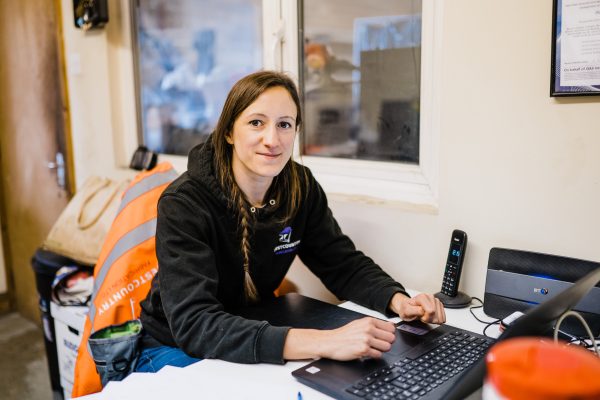
It was not some calling, or childhood dream. This has been a ‘squiggly career’ path.
That certainly fits for me. There is quite a backstory here, my first step into construction was the renovation of our home, a 100 year old Cornish cottage bought in 2014. The timing coincided with assisting my partner, Jack, with his rapidly growing his steel fabrication company and the imminent arrival of our baby. Followed by renovation round two through 2018-2019. Many lessons were learned through that process. I learned fast the challenges of project management in the construction industry. It was this, through necessity more than desire, which prompted me to leave my career in education and enter construction.
Fast forward to March 2020, the Covid19 lockdown! I had been taking a back seat in my role with Westcountry Fabrication Ltd prior to the lockdown, occasional input but my focus was on raising a family alongside some freelance environmental projects. The pandemic forced me to sit up front in our business and take note. There were challenges facing the business and myself and Jack were well positioned to face them together.
We sought support through the Devon and Cornwall Growth Hub for business mentoring and coaching, I attended training on health and safety, compliance, HR, and marketing. I took on delivery duties, website updates, quoting, [workshop toilet cleaning!]. I know more now than I ever thought I would about steel!
We produced a plan to get us through Covid and beyond. Jack is still very much the Managing Director, he started the business, he knows more about steel fabrication than I ever will, but there is a huge benefit in having a diversity in a team, and considerable progress has been made since 2020 as a result.
Mattew White comments:
‘Having worked on seven major construction programmes, I have learned that the most successful teams in those programmes are the ones with the most diverse communities of people, both gender and background diversity.’
So, I am here because there is work to be done. I bring an ardent desire for our business to be a leader in the industry to build a better, more respectful, dependable, and inclusive culture. For those working in construction and manufacturing to have the same level of mutual respect, regardless of background or gender, as other industries such as education.
Working from the bottom up, we are nurturing our team, and building a respected and respectful working environment. We have created a network of reliable trades, who work collaboratively together to achieve incredible things.
There is still ground to be covered, men still heavily dominate our workforce. There is a significant shortage of diversity in the industry and within our business. I am not a tick in a box, and we cannot ‘create’ diversity without meaningful change, we are in Cornwall in heavily male dominated and scarce skilled trade. There is no quick and easy fix but working on our in house culture is a start. If all firms in the industry made that start, we would be some way further on:
So, we all play a part, the architects, the main contractors, the electricians the plumbers. The finished product, the award winning homes, they are incredible and deserving of the headlines and glory. But they are not possible without the combined efforts of all involved. The draughtsman, the fabricators, the apprentices, the site teams, the delivery drivers, the men, and the women involved at every step of the project. A diverse team is a strong, efficient, and sustainable team. We can use our collaborative strengths to achieve remarkable things.
As a business we do our part internally, and very quietly externally. What we are terrible at, is networking. We are a team of (mostly) introverts, we are modest. But to foster some form of greater change, beyond the walls of our business, we are stepping out of our comfort zone.
We are keen to hear from other firms on how you are addressing the challenges associated with the culture of construction. We want to be able to discuss inclusion, diversity, the environment, and long term sustainability with others that are in a similar position to us. We want to facilitate cooperation with others and the sharing of good practice.
It is not construction specific, but I am looking forward to the ‘West Country Women’s International Women’s Day’ virtual networking event tomorrow. Please do reach out to us if you know of any other meaningful networking opportunities, or indeed just want to open the conversation with us.
And so, to conclude, 5 insights as a woman in construction:
- Construction needs a re-brand. As a society, from early schooling on-wards, we need to value the role that construction has as an industry, and the value of construction workers have within our society.
- Women in construction are still in a significant minority, more needs to be done to unpick this and to facilitate a diverse, inclusive, and sustainable workforce.
- Sexism still exists in construction. It may not be the ‘wolf whistles’ from a building site, but the ingrained prejudices of the few within the industry still prevail.
- Call to action, men and women, look at your in-house business culture (not your KPI’s and gender ratio), look deeper to uncover and unlearn any negative behaviours.
- The road to a career in construction for many women may be laid with crazy paving that you must lay yourself. It may come with challenges, but it also comes with possibility, diversity in duties and flexibility.
